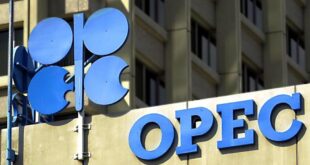An economist, Dr Muda Yusuf, says the decision of the Federal Government to postpone the removal of petrol subsidy indefinitely has a weighty economic cost.
Yusuf, who is the Chief Executive Officer, Centre for the Promotion of Private Enterprise (CPPE), made this known in a statement issued on Monday in Lagos.
Hajia Zainab Ahmed, Minister of Finance, Budget and Economic Planning, had made the announcement on Monday in Abuja.
Ahmed, who spoke at the National Assembly, said the government would no longer go ahead with its earlier plans to remove subsidy on Premium Motor Spirit in July 2022.
Reacting to the development, Yusuf noted that the capitulation on the subsidy removal did not come as a surprise because of the prevailing realities and opposition by organised labour.
He said: “There were too many odds against the move. There were obvious concerns about the potential political cost to government and the ruling party.
“There were worries about the social cost given the excruciating poverty in the country. There was also the waning goodwill required by government to enlist the support of the people.
“The whole subsidy story became a political economy matter. It was moved from the realm of economics and investment to the political realm.
“The outcome was predictable, especially with an impending general election next year.
“But the economic cost of the capitulation is equally weighty. The truth is that you cannot eat your cake and have it.”
According to him, Nigerians should expect the cost of funding the subsidy to be much higher this year because of the surge in crude oil prices.
Yusuf said if the oil price remains high for the most part of the year, the subsidy cost could go as high as N2.5 trillion or even more by the end of the year.
He said: “This would surely affect funding for critical infrastructures such as roads, railways, healthcare education, and even security.
“The petroleum products smugglers, beneficiaries of the fiscal leakages in the fuel subsidy ecosystem and their collaborators will continue to smile to the banks for the next one and half years.”
According to him, it will be tough for some states in terms of payment of salaries, especially states that are heavily dependent on federal allocation.
“Many will struggle to meet their financial obligations as sub-nationals,” he said.
Yusuf, a former Director-General of the Lagos Chamber of Commerce and Industry, said macroeconomic risks would become elevated as fiscal deficit and borrowing significantly surpasses projections in the 2022 budget.
He added that the Central Bank of Nigeria may have to continue to cover financing gaps through ways and means.
” This of course has serious inflationary implications. The macroeconomic outcomes would adversely impact the exchange rate, leading to further depreciation of the currency.
“Meanwhile, prospective investors in the downstream oil sector would withhold their investments until the policy environment becomes conducive.
“Additionally, a major confidence crisis has been created around the Petroleum Industry Act as a result of this capitulation.
“These are the price we would have to pay as a country for the policy reversal,” Yusuf said.
(NAN)
Subscribe to the Advocate News letter and receive news updates daily in your inbox.
 Advocate.ng Latest news update on politics, entertainment, sport and more
Advocate.ng Latest news update on politics, entertainment, sport and more



